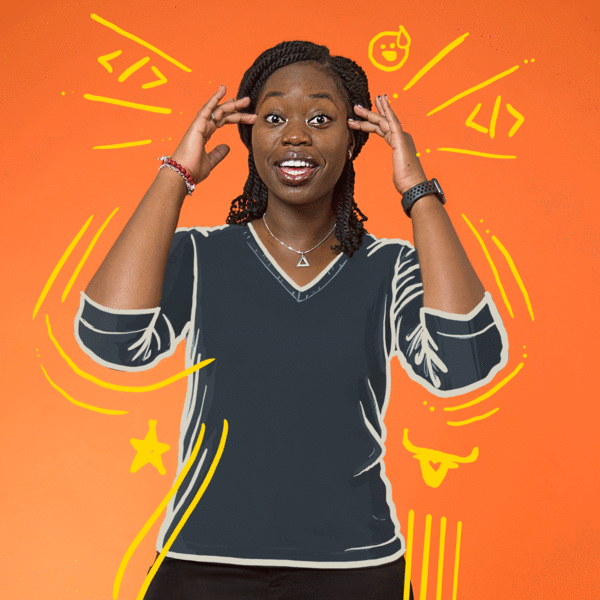Jacqueline decided her future was in coding when she attended UT’s First Bytes summer camp. She was inspired by the power it gave her. Today, she is an advocate for inclusive code and tech that considers all users. As an undergrad, Jacqueline worked at Microsoft during the summers. For the past two years, she has been working on what she calls her “dream team,” building a new accessibility product that just went public. When she graduates, she plans to return to Microsoft full-time to continue this work.
Why did you get into computer science?
Technology is this great equalizing force, if you think about it. Everything is increasingly reliant on technology, on algorithms, on software, on systems. So, to effect the change I want to see and impact the world, I need to know how to master those systems and make them work for all.
What do you hope will be your mark on the world after graduation?
I have always been inspired by the Shirley Chisholm quote, “If they don’t give you a seat at the table, bring a folding chair.” It is my hope that my legacy, not only on the Forty Acres but in the world, is that I have fought to create inclusion and community in spaces where there was none. For me, it is not enough to bring a chair for yourself; you have to make space for others to join as well and make their voices heard.
Advocacy is my jam.”
What does inclusion look like in computer science?
In my opinion, inclusion looks like “diversity at the table.” I think everyone should be able to use technology independently. I think the industry overall has not historically recognized the importance of universal usability, but everyone stands to benefit from it. Many times you create something that’s accessible and everyone uses it. Take speech dictation, right? I use that all the time. I have use of my hands, but it’s still really useful. I’m seeing an interesting push in the tech field where people are considering a diversity of users, not just as an add-on, but a benefit.
How are you contributing?
My team at Microsoft created software that scans webpages and finds accessibility issues. Our tool empowers other developers to produce code that is inclusive. So if you’re someone with low vision or no vision and are trying to scan a webpage, instead of it just spitting out gibberish to you, with the tool, it will now be usable content.
Where do you see yourself in 10 years?
I feel that UT students tend to be very goal-oriented people. We are always asking, What’s next? And that is fine. But sometimes, you have to give yourself the gift of truly being in the moment. So, I don’t know what I want for the next 10 years. I just know what I want for the next few years, and I want to actually go and enjoy that first dream.
Jacqueline Gibson is graduating with degrees in computer science from the College of Natural Sciences and African and African diaspora studies from the College of Liberal Arts. She is a Stamps Foundation Forty Acres Scholar. She is a member of the Friar Society, Texas Orange Jackets, and Onyx Honor Society; two-time appointee to the President’s Student Advisory Committee; and co-founder of the Association of Black Computer Scientists.
Her awards include the President’s Leadership Award, Texas Parents Outstanding Student Award, Dean’s Honored Graduate for the College of Natural Sciences, Theodore Henry Strauss Student Award for Exemplary University Service, College of Natural Sciences Dean’s Choice Award, and the College of Natural Sciences Aspire Leadership and Service Award.
